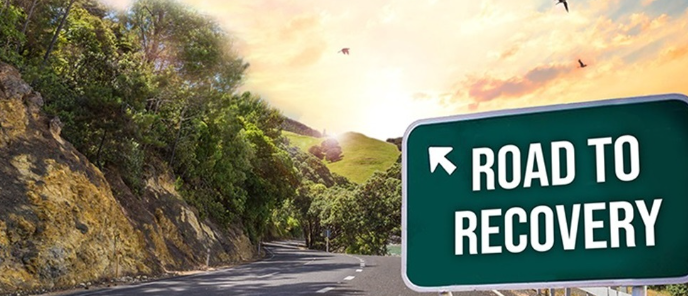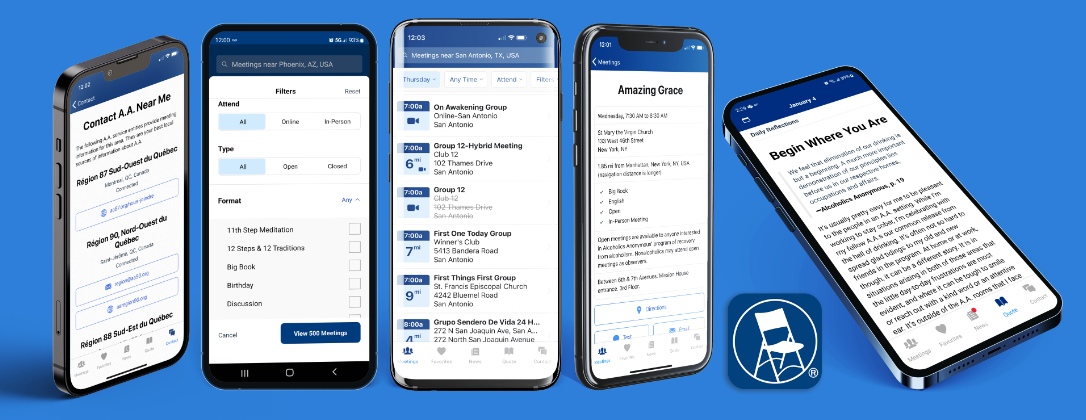
Help is here!-Area 29 (Maryland) Alcoholics Anonymous
Join us! You are not alone and we have “been there”.
Resources for immediate help
Intergroups
Local Intergroups (www.marylandaa.org/intergroups)
Offer a range of support and resources, including meeting guides, literature, and information on local events.
Intergroups have phone lines answered by recovering alcoholics usually with availability 24 hours a day.
If you need urgent support or assistance outside of regular hours or while waiting for a call back, you can contact any Intergroup to speak with someone about recovery.
The Maryland Intergroups are listed below
-
Western MD Intergroup 844-568-3422 www.WesternMarylandaa.org
-
Hagerstown Intergroup 240-850-2677 www.Hagerstownaa.org
-
West Central Intergroup 301-662-0544 www.Westcentralaa.org
-
Baltimore Intergroup 410-663-1922 www.Baltimoreaa.org
-
Annapolis Intergroup 410-268-5441 www.Annapolisareaintergroup.org
-
Southern MD Intergroup 800-492-0209 www.Somdintergroup.org
-
Northeastern MD Intergroup 410-272-4150 www.Nemdaa.org
-
Midshore Intergroup 410-822-4226 www.Midshoreintergroup.org
-
Lower Shore Intergroup 410-543-2266 www.Lsiaa.org
-
Ocean City Intergroup 443-754-4051 www.Ocaa.org
-
Hispanic Intergroup/ Alcoholicos Anonimos Hispano 443-257-1877 www.AAhispanomaryland.org
Maryland Deaf Access Committee
The Maryland Deaf Access Committee (MDAC) www.MDACaa.org, led by Deaf individuals, is connected to recovery resources and support tools both locally and nationwide. MDAC assists in coordinating local Deaf services and provides information on Deaf-friendly meetings, Deaf vlogs, online meetings, and recorded meetings in ASL. In addition, Baltimore has a hybrid meeting twice a month that provides both in-person and online ASL interpretation.
The Meeting Guide App

The meeting guide app available for download on the Apple App Store and Google Play Store or at www.aa.org/meeting-guide-app, helps find AA meetings. The app lists both in-person meetings and virtual and hybrid meetings (offering both in-person and online options). You can search for meetings by zip code or use filters to find specific types of meetings including “wheelchair access”. Any wheelchair accessible meeting will be walker friendly as well.
On-Line Intergroup
There is always a meeting going on somewhere! And the online intergroup at www.aa-intergroup.org of virtual /phone meetings has meetings 24 hours a day, in over 16 languages, and various formats including ASL, low vision, closed captioning for the hard of hearing, young people, seniors, BIPOC, and LGBTQIAA+.
Alcoholics Anonymous Global Website
www.aa.org is the worldwide website with the most resources. Scale down the front page for immediate access to literature and information including what it’s like to attend a meeting. Scroll to the page bottom, there is a lot there!
Alcoholics Anonymous is a fellowship of people who come together to solve their drinking problem. It doesn’t cost anything to attend A.A. meetings. We are self-supporting through members’ own contributions. There are no age or education requirements to participate. Membership is open to anyone who wants to do something about their drinking. A.A.’s primary purpose is to help alcoholics to achieve sobriety. -From www.AA.org
********Note that members maintain anonymity at the level of press, radio, film and on multimedia. We introduce ourselves by first name (some chose to use their last name) and in meetings usually sign on as first name only. See the anonymity pamphlet P-47 www.aa.org/understanding-anonymity for more and our anonymity card below.*********
Anonymity
Anonymity Concerns and Meeting Options:
-
If you’re a highly visible professional or have concerns about anonymity, you can join an online meeting and keep your camera turned off. Most virtual meetings also offer the option to join by phone. Instructions are available on the web for how to dial into virtual meetings. Also, some meetings are phone access only.
-
Professional Groups:
-
There are AA groups specifically for professionals, where members of the same profession meet together. Some of these groups are listed in the meeting directory, such as Baltimore’s “Healthcare Professionals Plus You” and the “Legal Professionals” group. You can also search the online intergroup directory by keyword to find these specialized meetings.
-
Location Flexibility:
-
You can join virtual or phone meetings in any state or country. This flexibility allows you to find the meeting that best suits your needs, regardless of location.
-
Understanding Meeting Types:
-
Open Meetings: Open to anyone interested in AA’s program of recovery. Non-alcoholics may attend as observers. Family members and loved ones of alcoholics sometimes attend to learn more about alcoholism or to support their loved one.
-
Closed Meetings: Restricted to AA members or those who have a drinking problem and a desire to stop drinking.
-
Open meetings are available to anyone interested in Alcoholics Anonymous’s program of recovery from alcoholism. Non alcoholics may attend open meetings as observers.
-
Closed meetings are for A.A. members only or for those who have a drinking problem and “have a desire to stop drinking.”- from AA.org
A.A. ANONYMITY
(Announcement for reading at meetings open to the public)
There may be some here who are not familiar with our Tradition of personal anonymity at the public level:
“Our public relations policy is based on attraction rather than promotion; we need always maintain personal anonymity at the level of press, radio and films.”
We respectfully ask that A.A. speakers and A.A. members not be photographed, videoed, or identified by full name on all media platforms or in any published reports of our meetings, including those reports on public media platforms.
The assurance of anonymity is essential in our efforts to help other problem drinkers who may wish to share our recovery program with us. And our Tradition of anonymity reminds us that A.A. principles come before personalities.
Accessibility
We are highly accessible and even have an accessibility committee ready and available to assist with needs, see www.marylandaa.org/accessibilities or email accessibility@marylandaa.org. Some thoughts on accessibilities-
-
The Big Book (our basic text) is also available in large print, online (can be used with a screen reader or the online audio format), in braille, and in ASL on YouTube. The Twelve and Twelve and some other literatures are also available in these formats.
-
Multiple language formats are available at www.aa.org/resources/literature
-
The AA Grapevine www.aagrapevine.org and the Hispanic edition La Vina www.aalavina.org are our “meeting in print” and are colorful monthly publications with short stories and articles. The online version (available via an inexpensive app) has large print and audio format availability. There are many available archive stories on how members have maintained sobriety while living with disabilities.
-
AA has a podcast as another means for those who prefer or need audio for access at www.aagrapevine.org/podcast
-
Follow AA on YouTube at(2) Alcoholics Anonymous World Services, Inc. – YouTube and turn on closed captions for those hard of hearing.
-
The hard of hearing can join online or hybrid meetings that have closed captioning (search by the meeting filters for closed captioning). Also consider attending an in-person hybrid meeting and pulling up the virtual meeting and turning on captioning if available. Some in person meetings use a microphone.
-
Some areas/states have additional foreign language or Deaf intergroups or access committees.
-
Maryland has the Hispanic Intergroup listed above and the Maryland Deaf Access Committee (MDAC).
-
Please note that computers, laptops, many tablets, and most smart phones have built-in accessibility options that can be unlocked/opened for assistive features. Such features include text to speech, closed captioning and live captioning and screen readers. There are also many assistive accessibility apps that can be used to assist needs. Screen readers can enlarge print for low vision and text to speech (TTS) can read text aloud for those with low vision.
-
Some with PTSD or other needs also feel safest joining virtual or phone meetings
-
Homebound or hospitalized? Join virtually online or on the phone. And an intergroup or the accessibility committee may be able to arrange for a meeting to come to you.
There is always a meeting going on somewhere. There is always an alcoholics anonymous intergroup hotline open somewhere. We are highly accessible and inclusive. Help and recovery are available. You are never alone.
And help is available through Al-Anon for families and anyone affected by someone else’s drinking. Although Al-Anon and Alcoholics Anonymous (AA) cooperate closely, they are not affiliated with each other. In fact, over 200 mutual aid organizations or fellowships have adapted AA’s 12-step recovery program for their own use